Lab calibration services are an essential part of ensuring the accuracy and reliability of laboratory equipment. From pipettes to spectropho...
Lab calibration services are an essential part of ensuring the accuracy and reliability of laboratory equipment. From pipettes to spectrophotometers, precise calibration is crucial for obtaining accurate results in scientific experiments and research. In this article, we will explore the importance of lab calibration services and how they can help to maintain the integrity of scientific data. Additionally, we will discuss the various benefits of utilizing professional lab calibration services and the best practices for ensuring the accuracy of calibration of electrical test equipment laboratory equipment.
Lab calibration services are essential for ensuring that laboratory equipment and instruments are providing accurate and reliable measurements. Calibration involves comparing the measurements of a piece of equipment to a known standard to determine any deviations or inaccuracies. This process helps to maintain the accuracy of equipment and ensure that it is producing consistent and reliable results. Additionally, regular calibration can help to identify any issues with equipment performance and prevent potential equipment calibration errors or discrepancies in experimental data. Overall, lab calibration services play a crucial role in ensuring the accuracy and reliability of laboratory measurements.
The Importance of Lab Calibration Services for Accurate Measurements
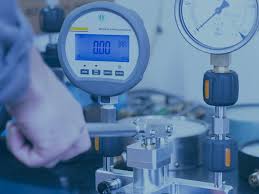
Lab calibration services are essential for maintaining the accuracy and reliability of measurement instruments. Without regular calibration, instrument readings can become erroneous, leading to faulty data and potential errors in various processes and procedures. Calibration ensures that an instrument's measurements are consistent with a known standard and are traceable to national and international measurement standards. This is crucial for industries such as healthcare, pharmaceuticals, manufacturing, and research, where precise measurements are critical for quality control, compliance, and scientific integrity. Additionally, regular calibration can extend the lifespan of instruments by identifying any potential issues early on and allowing for timely adjustments or repairs. This can ultimately lead to cost instrument calibration solutions savings by preventing costly downtime and avoiding the need for premature replacements. Furthermore, calibrated instruments instill confidence in the accuracy of results, which is important for decision-making processes, regulatory compliance, and maintaining a good reputation within a particular industry. In conclusion, lab calibration services play a vital role in ensuring accurate measurements, maintaining instrument reliability, and upholding the quality and integrity of data and processes in various industries.
Ensuring Accuracy: The Role of Lab Calibration Services in Research
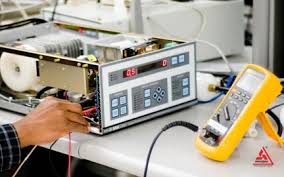
Lab calibration services play a critical role in ensuring accuracy in research. These services help to maintain the reliability and precision of laboratory equipment, such as pipettes, spectrophotometers, and balances, by regularly comparing their measurements to traceable standards. This ensures that the data collected from these instruments is accurate and can be trusted in research and experimentation. By periodically calibrating lab equipment, researchers can have confidence in the accuracy of their results, ultimately leading to more reliable scientific findings. Additionally, calibrated equipment can help labs meet regulatory requirements and maintain the quality and consistency of their research. Overall, lab calibration services are essential for upholding the standards of accuracy and precision in scientific research.
Maximizing Efficiency with Professional Lab Calibration Services
What is calibration of instrument
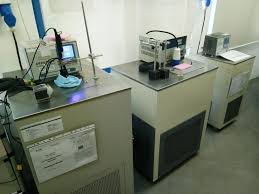
Maximizing efficiency with professional lab calibration services involves ensuring that all equipment and instruments are precisely and accurately calibrated to deliver reliable and consistent results. This requires utilizing the expertise of skilled professionals who can calibrate a wide range of instruments to industry standards, effectively minimizing the risk of errors and inaccuracies. Professional lab calibration services can help organizations optimize their processes, improve productivity, and enhance the overall quality of their output. Regular calibration also helps to prolong the lifespan of equipment and reduce the likelihood of unexpected breakdowns, saving time and money in the long run.
Why Your Lab Needs Regular Calibration Services to Maintain Precision
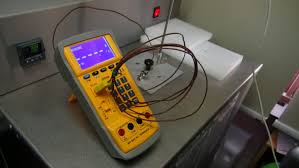
Regular calibration services are essential for maintaining precision in laboratory equipment. Over time, instruments can drift out of calibration, leading to inaccurate measurements and potentially compromising the quality of experimental results. Regular calibration ensures that instruments are performing within their specified tolerances, providing confidence in the reliability of data generated. Additionally, calibration services help to identify and address any issues with equipment, prolonging its lifespan and reducing the risk of costly repairs or replacements. Overall, investing in regular calibration services is crucial for maintaining the accuracy and integrity of laboratory processes.
The Benefits of Outsourcing Lab Calibration Services to Experts
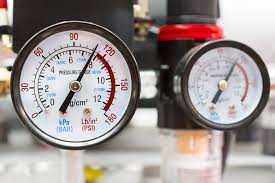
Outsourcing lab calibration services to experts brings numerous benefits to businesses. Firstly, it allows companies to access specialized knowledge and experience, ensuring that their instruments and equipment are calibrated to the highest standards. This can help to improve the accuracy of test results and overall operational efficiency. Additionally, outsourcing lab calibration services can lead to cost savings. By utilizing the expertise and resources of a specialized calibration service provider, companies can avoid the need to invest in expensive calibration equipment and the associated training and maintenance costs. Outsourcing also provides businesses with greater flexibility and scalability, as they can quickly and easily adjust their calibration needs based on fluctuating workloads. Furthermore, by entrusting calibration services to experts, companies can focus on their core activities, leading to increased productivity and streamlined operations. Overall, outsourcing lab calibration services to experts can result in improved accuracy, cost savings, flexibility, scalability, and enhanced focus on core business activities.
Choosing the Right Lab Calibration Services for Your Laboratory Needs
When choosing the right lab calibration services for your laboratory needs, it is important to consider several factors. First, consider the accreditation and certifications of the calibration service provider. Look for a provider that is accredited by a recognized organization, such as ISO/IEC 17025. This ensures that the provider meets specific quality and competency standards. Additionally, consider the range of services offered by the calibration provider. Ensure that they offer calibration services for the specific instruments and equipment used in your laboratory. It is also important to consider the turnaround time for calibration services, as well as any additional support or documentation provided. Cost is another important factor to consider when choosing a calibration service provider. While it is important to stay within budget, it is also crucial to balance cost with the quality of service provided. Consider obtaining quotes from multiple providers to compare costs and services offered. Lastly, consider the reputation and customer reviews of the calibration service provider. Look for feedback from other laboratories or organizations that have used their services to ensure their satisfaction with the quality and reliability of the calibration services. By considering these factors, you can confidently choose the right lab calibration services that best meet your laboratory needs.
Key Factors to Consider When Selecting Lab Calibration Services
When selecting lab calibration services, it is important to consider factors such as the accreditation and certification of the calibration provider, the traceability and documentation of the calibration process, the turnaround time for calibration services, the availability of on-site calibration options, the experience and expertise of the calibration technicians, and the cost of calibration services. Choosing a reputable and reliable calibration service provider is crucial to ensuring the accuracy and reliability of your lab equipment and instruments.
The Impact of Advanced Technology on Modern Lab Calibration Services
Advanced technology has significantly impacted the field of lab calibration services by improving accuracy, efficiency, and productivity. The use of automated calibration equipment and software has streamlined the calibration process, reducing the time and resources required for each job. Additionally, advanced technological tools such as robotic arms and high precision instruments have enhanced the accuracy of measurements, resulting in more reliable and precise calibration results. Furthermore, the integration of cloud-based systems and remote monitoring capabilities has allowed for real-time data analysis and calibration adjustments, providing greater flexibility and adaptability to changing conditions. This can lead to faster response times and reduced downtime for equipment. Overall, the impact of advanced technology on modern lab calibration services has been transformative, enabling higher quality service, improved capabilities, and increased customer satisfaction.
The Future of Lab Calibration Services in the Era of Automation
Lab calibration services are expected to undergo significant changes in the era of automation. With the increasing adoption of advanced technology such as robotics, artificial intelligence, and machine learning, the process of calibration is becoming more automated and efficient. This is leading to a higher level of accuracy and repeatability in the calibration process. Additionally, automation is also enabling labs to perform calibration tasks more quickly, thereby increasing their overall productivity. As a result, the future of lab calibration services is likely to be characterized by greater automation, improved quality control, and enhanced operational efficiency. Laboratories that embrace these advancements will be better positioned to meet the growing demand for calibration services in various industries, ranging from healthcare and pharmaceuticals to manufacturing and aerospace. Furthermore, the integration of automation in calibration services is also expected to drive down costs, making these services more accessible to a wider range of customers. Overall, the future of lab calibration services in the era of automation holds great promise for both service providers and their clients.
How Lab Calibration Services Contribute to Scientific Advancements
Lab calibration services play a crucial role in scientific advancements by ensuring that the instruments and equipment used in research and experimentation are accurate and reliable. This is essential for obtaining precise and consistent results, which are crucial for the development of new technologies, medicines, and materials. By maintaining the accuracy of scientific instruments, lab calibration services contribute to the overall quality and integrity of research and development in various fields, ultimately driving forward scientific progress and innovation.
